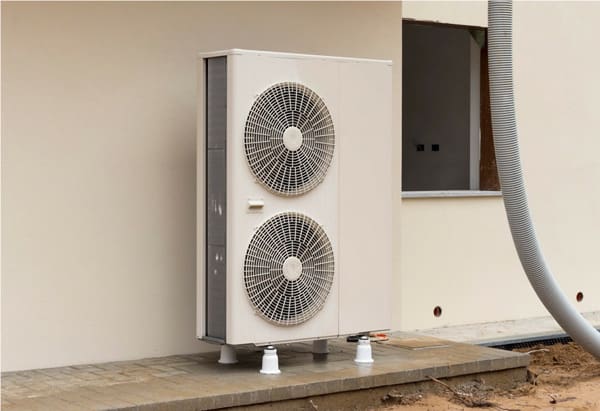
A heat pump regulates temperatures in your home to make your living space more comfortable. During winter, the refrigerant in the pump brings heat inside your house to keep you warm. In summer, the refrigerant changes its flow and removes heat from inside your house.
However, your heat pump might break down over time with continuous usage. A leaking heat pump, for instance, can lead to many other problems – including water damage and mold growth. As a homeowner, know what causes these leaks and how you can effectively correct them.
1. Accumulated Dirt in the Coils
Your heat pump operates by fetching moisture from the air in its surroundings. Once the moisture reaches the evaporator coil, it condenses to form water droplets. The droplets then flow down the coil and collect into a drain pan. The drain pan connects to a channel through which the collected water flows out of the pump.
However, the moisture initially collected from the air may contain some dirt particles. After a while, the dirt accumulates in the coils and eventually alters the flow of water down to the drain pan.
Without a proper escape route, the water may find another exit point and result in an unexpected leak. Water may start dripping into the ground closest to the heat pump.
2. Drain Line Problems
As mentioned earlier, part of your heat pump’s job is to drain off excess water. The drain line provides a path to remove the condensed moisture from your heat pump unit. However, the drain line can clog with mold and accidental debris over time.
Water may overflow while some of it backs up to the heat pump if the drain line is blocked. In doing so, your pump may suffer severe water damage and fail to perform properly. With a clogged drain line, you can expect major leaks in and around the heat pump.
Luckily, a maintenance expert can quickly determine what physical debris is behind the clog. The most common unblocking technique is by using a wet/dry vacuum along the condensate channel. The specialized vacuuming equipment effectively sucks out the blockage while making sure not to disorient the inner heating components in your pump.
3. Frozen Evaporator Coil
When your heat pump runs low on refrigerant fluid, the evaporator coil may freeze up. As a result, the low temperatures trigger ice formation in your heat pump unit. Eventually, the ice melts and leaks out from your pump.
With frozen coils, your heat pump now has to work harder than usual to produce the same amount of heat. More energy usage means that you’ll have to pay more in monthly utility bills. Also, gradual ice deposits may cause your heat pump to break down and fail altogether. Besides, you’ll have the problem of water constantly leaking out from your system.
A licensed HVAC technician can determine how much refrigerant they need to top up and get your heat pump back to regular operation. Also, they could recommend other solutions to keep your evaporator coil from icing up again. Regular maintenance is one cost-efficient way to prevent the problem from recurring in the future.
Avoid Leaks and Water Damage
Heat pump leaks can tell you when your HVAC system isn’t performing at its best. Besides encouraging the growth of harmful mold, accumulated water can cause extensive structural damage to your walls and floors. You’d have to part with a huge sum to fix the resulting damages as well as the leaking heat pump.
Avoid a similar string of problems by keeping to a strict maintenance schedule. Our qualified technicians at Steele Brothers Heating, Inc., can help you set up a convenient schedule that works for your household.
